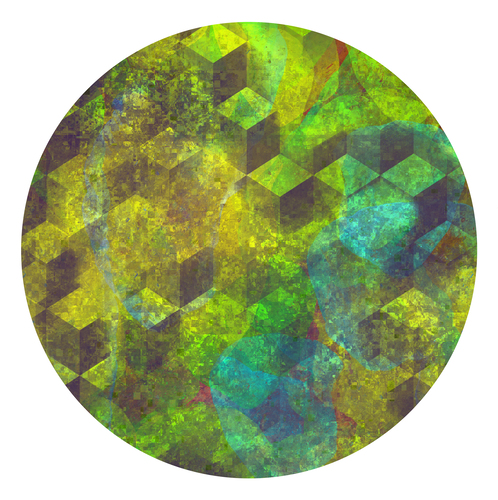On The Amazing Adventures of Kavalier & Clay
Posted by Jack on 2019-08-25 at 19:00Tagged: books

| Title | The Amazing Adventures of Kavalier & Clay |
| Author | Michael Chabon |
| Published | 2000 |
| ISBN | 9780812983586 |
This book was wonderful. I have enjoyed most of the Pulitzer winning fiction I've read, unsurprisingly, but this was a rare book that was so compelling that I found myself reading it in bed until the early hours of the morning.
Chabon's writing is very evocative while flowing easily. He's not afraid of a well fitting bit of vocabulary (or making up his own ala "aetataureate") but the entire book is just a joy to read. Chabon's style shifts seamlessly between author omniscience and a sort of a well-researched paper with citations without ever breaking stride. It's this diligence that makes the world feel like it's real - Chabon's old New York actually works and the characters breathe within it.
The story is perfectly encapsulated. It doesn't rush, and doesn't dawdle. It spends a long time establishing characters and then pays them off. Predictably, with the backdrop of WWII, there is a bit of military adventure but even that interlude is relevant and surprising.
Best of all the three main characters just feel right. They are talented, but not superhuman. They make mistakes, but stay true to their motivations and their relationships.
I don't want to spoil anything so before I tag the rest of the review, suffice it to say this book is well worth a read.
I absolutely loved Josef and Rosa's relationship and the conflict Josef feels about living the wealthy, comfortable life with her while his family is still trapped in Europe. The things they notice about each other, the appreciation of each other's art. I identified strongly with Josef and Rosa shares a lot of traits with my wife that were actually a bit spooky. I think the idea that Josef would effectively abandon her after the war actually makes sense when you think about all he's been put through and the tragedy of losing his family in the Holocaust after all of his efforts.
Sammy's relationship with Tracy is also really well done and heartbreaking from the point of view of being repressed in this supposed "Golden Age" of American culture. The conflict Sammy feels in identifying as a "fairy" and his self-repression of taking Rosa as his loveless wife all ring true for the time and work well - not only as a juxtaposition with the idyllic concept of the 40s-50s post-war home life, but as a realistic development with Josef's behavior.
Tangentially, I want to call out Chabon's frequent use of smell in his descriptions. From the usual lingering perfumes and cigars, to the distinctive smell of Josef's office apartment, the basement smell of old comics, to the Navy pilot that stank "as if he had been dipped in some ungodly confection of camembert and rancid gasoline brewed up in a spit-filled cuspidor.” I mean, talk about descriptive. The more positive smells of Josef and Rosa serve to underscore their longing for each other during Joe's long period of absence as well. It's just good to get the nose engaged seriously.
The rise and fall of the comic book industry also plays a big part in the structure of this novel, but more importantly the creation of the comics themselves serve as a great mirror for the characters to reflect their internal thought processes. Josef's need to defeat endless waves of Nazi stand-ins before the war, and then portray the Golem (Jewish protector) afterwards. Sammy's conflict at creating successful pulp comics versus his desire to be a serious author (writing American Disillusionment which is a perfect companion for his story). Even Rosa moving from being a "serious" artist collaging and painting, to writing and inking her own comics to form a sort pseudo-love with Sammy (and a powerful connection to Joe while he was missing).
Chabon also does a great job creating the fictional Escapist / Luna Moth and other stories and layering them with meaning in the outside world as written by the main characters. Throughout most of the book it's not clear where the line between reality and fiction is drawn, but the comic aspect is so well backstopped by reality (including a lot of real comic authors and obscure heroes) that the Escapist and Luna Moth fit in like a missing puzzle piece.
The use of comics as a window into the American psyche also feels particularly inspired when considering this book was written 20 years ago, before comics became a truly mainstream affair. I say that with a bit of incredulity as someone that read comics as a kid in the 90s, but even with the 60 year history at the time, comics were still the niche interest of nerds. Chabon's research and use of comics as the central theme of the book in award winning fiction seems almost prescient in the world before the MCU dominated the box office and Marvel (briefly mentioned in the book, including a few lines of dialogue from Stan Lee) was a multi-billion dollar Disney acquisition.
This book does a lot, but manages to stay well focused and tight throughout. I teared up many times, I felt inspired, I felt worried, I laughed. As I mentioned before, it's a rare book that draws me in so completely and the one dirty trick it pulled was ending with so many pages left in the book intentionally dedicated to notes, acknowledgements and fragments of stories. It took me by surprise, but the story proper never pulled a punch down to the final line, which changed the entire meaning of the title.
I loved this book.
